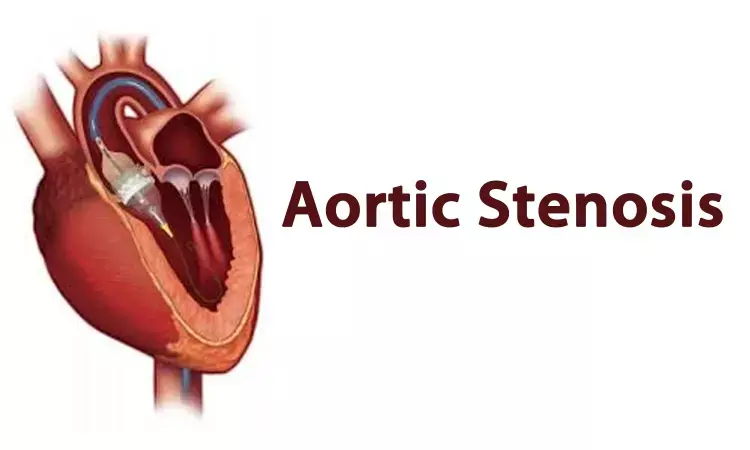- Home
- Medical news & Guidelines
- Anesthesiology
- Cardiology and CTVS
- Critical Care
- Dentistry
- Dermatology
- Diabetes and Endocrinology
- ENT
- Gastroenterology
- Medicine
- Nephrology
- Neurology
- Obstretics-Gynaecology
- Oncology
- Ophthalmology
- Orthopaedics
- Pediatrics-Neonatology
- Psychiatry
- Pulmonology
- Radiology
- Surgery
- Urology
- Laboratory Medicine
- Diet
- Nursing
- Paramedical
- Physiotherapy
- Health news
- Fact Check
- Bone Health Fact Check
- Brain Health Fact Check
- Cancer Related Fact Check
- Child Care Fact Check
- Dental and oral health fact check
- Diabetes and metabolic health fact check
- Diet and Nutrition Fact Check
- Eye and ENT Care Fact Check
- Fitness fact check
- Gut health fact check
- Heart health fact check
- Kidney health fact check
- Medical education fact check
- Men's health fact check
- Respiratory fact check
- Skin and hair care fact check
- Vaccine and Immunization fact check
- Women's health fact check
- AYUSH
- State News
- Andaman and Nicobar Islands
- Andhra Pradesh
- Arunachal Pradesh
- Assam
- Bihar
- Chandigarh
- Chattisgarh
- Dadra and Nagar Haveli
- Daman and Diu
- Delhi
- Goa
- Gujarat
- Haryana
- Himachal Pradesh
- Jammu & Kashmir
- Jharkhand
- Karnataka
- Kerala
- Ladakh
- Lakshadweep
- Madhya Pradesh
- Maharashtra
- Manipur
- Meghalaya
- Mizoram
- Nagaland
- Odisha
- Puducherry
- Punjab
- Rajasthan
- Sikkim
- Tamil Nadu
- Telangana
- Tripura
- Uttar Pradesh
- Uttrakhand
- West Bengal
- Medical Education
- Industry
Vitamin K2 and vitamin D supplements fail to slow aortic valve calcification in elderly

Denmark: Menaquinone-7 (MK-7), also known as vitamin K2, plus vitamin D supplementation for 2 years did not influence progression of aortic valve calcification (AVC) in elderly men with an AVC score >300 AU, a recent study has found. Results from the randomized, double-blind, placebo-controlled trial appear in the American Heart Association journal Circulation.
Menaquinone-7 (MK-7) is a cofactor for the carboxylation of proteins involved in the inhibition of arterial calcification and in previous studies has been suggested to reduce the progression rate of AVC in patients with aortic stenosis, a narrowing of the valve that controls blood flow from the heart to the rest of the body.
The trial included men from the community with an AVC score >300 arbitrary units (AU) on cardiac noncontrast computer tomography. 365 men were randomized to daily treatment with tablet 720 μg MK-7 plus 25 μg vitamin D or matching placebo for 24 months. Mean age was 71.0 years.
The change in the AVC score was the primary outcome. change in aortic valve area and peak aortic jet velocity on echocardiography, heart valve surgery, change in aortic and coronary artery calcification, and change in dp-ucMGP (dephosphorylated-undercarboxylated matrix Gla-protein) were the secondary outcomes.
Based on the study, the researchers reported the following findings:
- The mean increase in AVC score was 275 AU and 292 AU in the intervention and placebo groups, respectively.
- The mean difference on AVC progression was 17 AU.
- The mean change in aortic valve area was 0.02 cm2 and in peak aortic jet velocity was 0.04 m/s.
- The progression in aortic and coronary artery calcification score was not significantly different between patients treated with MK-7 plus vitamin D and patients receiving placebo.
- There was no difference in the rate of heart valve surgery (1 versus 2 patients; P=0.99), all-cause death (1 versus 4 patients), or cardiovascular events (10 versus 10 patients).
- Compared with patients in the placebo arm, a significant reduction in dp-ucMGP was observed with MK-7 plus vitamin D (-212 pmol/L versus 45 pmol/L).
To sum up the findings, 2 years MK-7 plus vitamin D supplementation did not influence AVC progression in elderly men with an AVC score >300 AU.
Reference:
The study titled, "Vitamin K2 and D in Patients With Aortic Valve Calcification: A Randomized Double-Blinded Clinical Trial," was published in the journal Circulation.
Dr Kamal Kant Kohli-MBBS, DTCD- a chest specialist with more than 30 years of practice and a flair for writing clinical articles, Dr Kamal Kant Kohli joined Medical Dialogues as a Chief Editor of Medical News. Besides writing articles, as an editor, he proofreads and verifies all the medical content published on Medical Dialogues including those coming from journals, studies,medical conferences,guidelines etc. Email: drkohli@medicaldialogues.in. Contact no. 011-43720751


